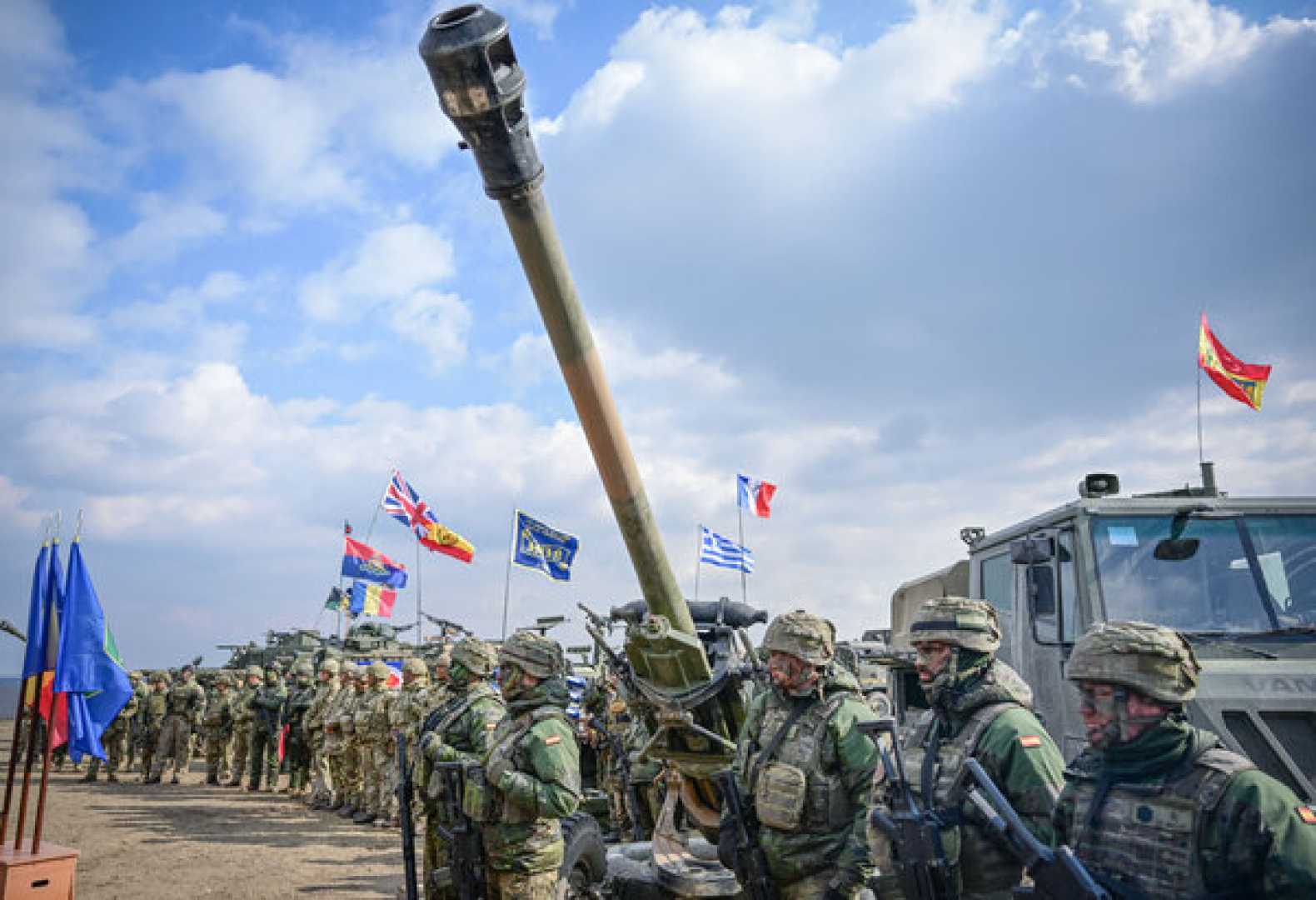World
Europe’s Security Landscape Shifts as U.S. Commitment Wavers

WASHINGTON, D.C. — Europe is facing unprecedented security challenges as the United States reexamines its role in global defense, prompting concerns over NATO‘s future amid allegations of declining American commitment. Experts warn that this shift could redefine international relations, possibly leaving Europe vulnerable as it attempts to establish greater military autonomy.
Recent remarks from President Donald Trump highlight a stark change in the U.S. approach to international alliances. During a speech last month, Trump stated, “If NATO countries don’t pay, I’m not going to defend them,” marking a departure from the longstanding U.S. policy of ensuring collective security.
The European security landscape has been evolving since the end of World War II, when the United States emerged as a global leader and protector of democracy. The establishment of the Truman Doctrine and NATO in the late 1940s solidified U.S. support for European nations against Soviet aggression. However, Trump’s presidency has introduced doubts about this commitment, raising alarms across the continent.
Former Defense Secretary Ben Wallace emphasized the gravity of the situation, saying, “Article 5 is on life support. If Europe doesn’t step up and invest in its defense, it could signal the end of NATO as we know it.” His comments reflect growing trepidation among European leaders grappling with the implications of a more isolationist U.S. stance.
Public sentiment in Europe also appears to be shifting. Polls conducted by French firm Institut Elabe reveal that three-quarters of the French population now view the United States as less of an ally. This sentiment is echoed in historically pro-American countries like the UK and Denmark, where majorities hold unfavorable views toward the U.S.
Ed Arnold, a senior research fellow at the Royal United Services Institute, articulated concerns regarding the structural changes in U.S. foreign policy. “The U.S. is becoming divorced from European values. I think the current trajectory of the U.S. will outlast Trump,” he said, underlining the potential long-term consequences for transatlantic relations.
These developments have not gone unnoticed by foreign adversaries. Russian President Vladimir Putin has leveraged the perceived instability within NATO to assert Russia’s influence, with analysts suggesting that a fragmenting Western alliance could benefit Moscow in its ambitions to destabilize Europe.
As discussions around European defense capabilities continue, leaders are recognizing the urgency of investing in indigenous military capacities. Germany’s incoming Chancellor Friedrich Merz underscored the necessity of making Europe independent from the U.S. defense umbrella, stating, “NATO needs to be Europeanized to meet the current geopolitical challenges.”
Historically reliant on American might, European nations now find themselves at a crossroads where they must heighten their own defense spending and focus on military self-sufficiency. The UK’s pledge to increase defense spending to 2.5% of GDP by 2027 represents a commitment to this cause. However, Wallace cautioned that such increases may still fall short of addressing critical vulnerabilities.
As NATO grapples with these changes, the urgency to cultivate a unified European defense policy grows. Ian Bond, deputy director at the Centre for European Reform, noted the disparity in motivation among EU states, particularly contrasting attitudes between Eastern and Western Europe. “Where we are at the moment is that the East Europeans by and large don’t need to get the memo,” he said.
The stakes remain high, with Europe facing possible isolation from key U.S. support. “The guarantee of U.S. help can no longer be taken for granted,” analysts warn, urging decisive action from European leaders to forge a collective and sustainable defense strategy capable of securing the continent in an increasingly multipolar world.












